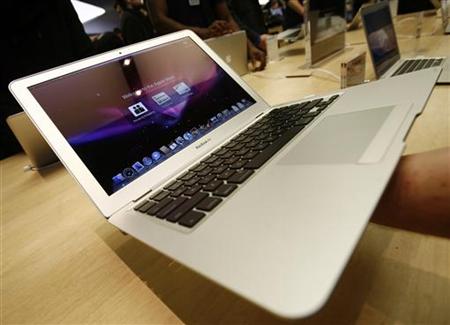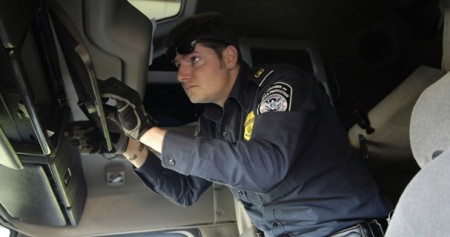
The “suggested duties” of these Terrorism Liaison Officers include: “source person for internal or external inquiry,” and “collecting, reporting retrieving and sharing of materials related to terrorism. Such materials might include … books journals, periodicals, and videotapes.” Photo: Stasi operative from the German film, The Lives of Others.
The full scale of Bush’s assault on our civil liberties may not be known until years after he’s left office.
At the moment, all we can do is get glimpses here or there of what’s going on.
And the latest one to come to my attention is the dispatching of police officers, firefighters, paramedics, and utility workers as so-called “terrorism liaison officers,” according to a report by Bruce Finley in the Denver Post.
They are entrusted with hunting for “suspicious activity,” and then they report their findings, which end up in secret government databases.
What constitutes “suspicious activity,” of course, is in the eye of the beholder. But a draft Justice Department memo on the subject says that such things as “taking photos of no apparent aesthetic value” or “making notes” could constitute suspicious activity, Finley wrote.
The states where this is going on include: Arizona, California, Colorado, Florida, Illinois, Tennessee, Wisconsin, and Washington, D.C.
Dozens more are planning to do so, Finley reports.
Colorado alone has 181 Terrorism Liaison Officers, and some of them are from the private sector, such as Xcel Energy.
Mark Silverstein of the Colorado ACLU told Amy Goodman of Democracy Now! that this reminds him of the old TIPS program, which “caused so much controversy that Congress eventually shut it down. But it is reemerging in other forms.” Silverstein warns that there will be thousands and thousands of “completely innocent people going about completely innocent and legal activities” who are going to end up in a government database.
On the web, I found a description for a Terrorism Liaison Officer Position in the East Bay.
Read moreBush’s Secret Army of Snoops and Snitches














